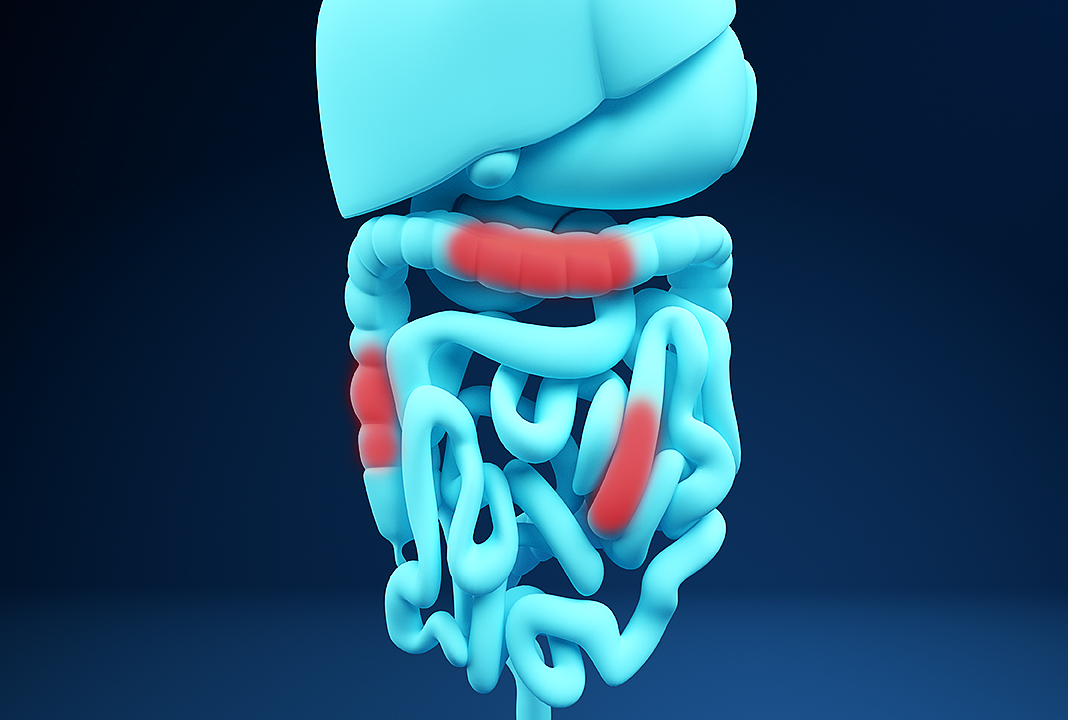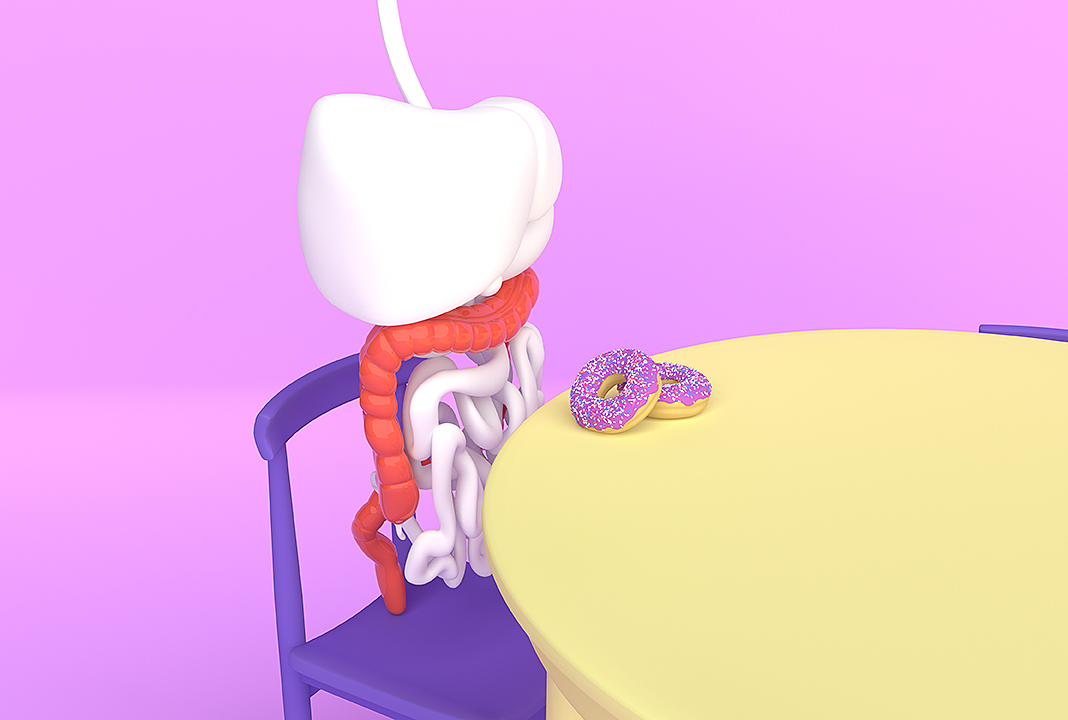Inflammatory Bowel Disease: Types, Causes & Treatments

Inflammatory bowel disease (IBD) is a general term that describes a variety of disorders involving chronic inflammation of the digestive tract. It is not the same as the better-known irritable bowel syndrome (IBS), though it is possible to have both.
Types of inflammatory bowel disease
There are two main types of inflammatory bowel disease: ulcerative colitis and Crohn’s disease.
Ulcerative colitis refers to inflammation and sores along the lining of the rectum and large intestine, also known as the colon. Crohn’s disease, on the other hand, causes inflammation in the lining of the digestive tract.
Some of the most common symptoms of inflammatory bowel disease include:
- Diarrhea
- Abdominal pain
- Cramping
- Fatigue
- Unintentional weight loss
- Reduced appetite
- Rectal bleeding
Symptoms of IBS can vary widely depending on the severity and location of the condition. Inflammatory bowel disease may cause flare-ups, during which symptoms increase in severity. These flare-ups are often followed by periods of remission.
Consult your doctor as soon as possible if you are experiencing symptoms. You may need to start treatment right away since the disease has the potential to cause serious complications.
What causes IBD?
Doctors are unsure of the exact causes of IBD. While one previous theory focused on diet and stress, the Mayo Clinic reported that these factors are now believed to aggravate the condition rather than cause it.
Though it still hasn’t been conclusively proved, researchers believe immune system malfunction may be to blame for IBD. The theory proposes that a malfunction may lead the immune system to attack the cells of the digestive tract as it tries to get rid of invading viruses or bacteria.
Studies have also shown that people with a family history of inflammatory bowel disease are more likely to get it themselves. However, it’s important to note that most people with the disease do not have a family history of it.
Factors that put an individual at greater risk of IBD include the following:
- Age. Most people get a diagnosis before age 30. However, some people don’t get the disease until they’re in their 50s or 60s.
- Family history. If you have a close relative with IBD, you are more likely to develop it yourself.
- Cigarettes. As is the case with most diseases, smoking cigarettes increases your risk for Crohn’s disease. For ulcerative colitis, however, smoking actually appears to decrease the severity. Keep in mind, though, that smoking leads to many other health risks.
- Certain medications. Studies have shown that nonsteroidal anti-inflammatory drugs (NSAIDs), such as ibuprofen (Advil), aspirin, naproxen (Aleve) and others, may increase the risk for, or severity of, inflammatory bowel disease.
- Race or ethnicity. Though individuals of any race or ethnicity can develop IBD, it’s most common among white people.
Treatment options available
IBD treatment focuses on reducing the inflammation that causes symptoms and complications of the disease. The two main types of treatment are drug therapy and surgery, or sometimes a combination of both.
Some common drugs include anti-inflammatory prescription medications, immune system suppressors and antibiotics. Your doctor may also offer antidiarrheal medication and pain relievers to help manage symptoms. If lifestyle changes, drug therapy or other remedies aren’t enough to get inflammatory bowel disease under control, you may need to consider surgery to remove affected tissue.
Be sure to reach out to your doctor if you’re struggling with inflammatory bowel disease. Finding the right treatment could not only lead to temporary relief but also potentially achieve long-term remission.


















